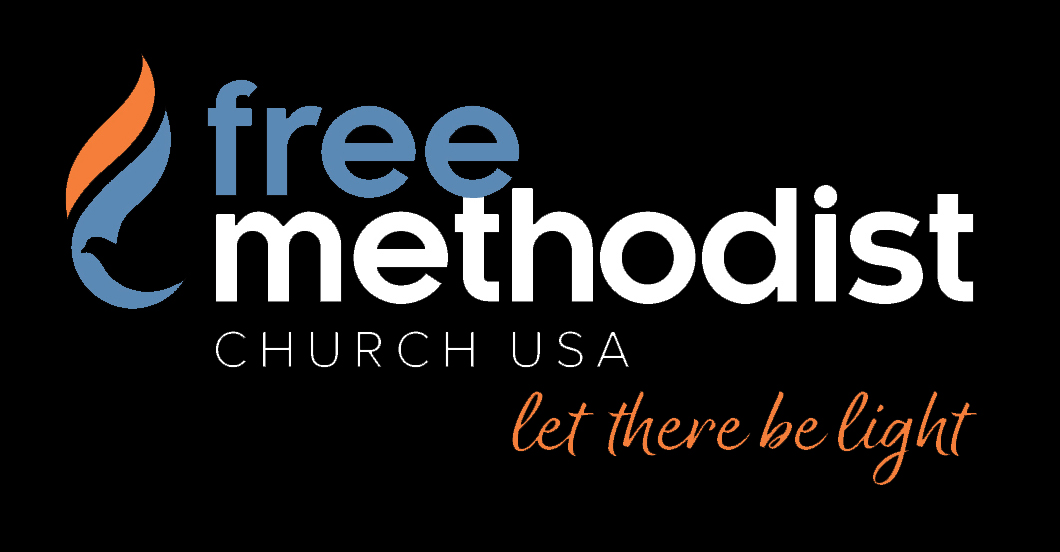Beliefs
On this page, we introduce our view of the most basic Christian beliefs. This is a simple outline of those beliefs, for your general information.
If you are interested in a more detailed look at what Free Methodists believe, you can see our denomination’s Articles of Religion. You’ll also find a list of the scriptural references for each article of out basic beliefs.
God
There is only one true living God who …
- creates and sustains life
- is eternal
- is infinite in power, knowledge and goodness
- is perfectly holy, just, merciful and loving
- who reveals Himself in three personalities, Father, Son and Holy Spirit (called the Trinity).
God the Father
- He reveals Himself in the role of a perfect father to both God the Son and His creation
God the Son
- He came to earth as a baby. He was conceived by the Holy Spirit, born to a virgin named Mary, and given the name Jesus.
- He was both human and God as he lived among mankind on this earth.
- He came to take the penalty for our sin upon Himself. His perfect, sinless life made Him a blameless sacrifice.
- He was crucified, died, and was buried. On the third day following His death, he came to life again.
- He returned to heaven and represents us before God the Father.
God the Holy Spirit
- The Holy Spirit reveals and interprets God to us.
- He is God with us, who lives in us, guides us, assures us, and enables us.
- It is the Holy Spirit who works in the lives of believers to make the church effective.
Scripture
- Scripture, as collected in the Bible, is God’s written record and is the authoritative source of knowledge about spiritual things.
- Men, under the influence of the Holy Spirit, wrote the scriptures in the style and language of their time.
- Scripture has been adequately preserved through time.
- The Old Testament is the story of how God revealed Himself to man. It provides a background for understanding the New Testament and is valuable as a source of inspiration and illustration.
- The New Testament is the eyewitness report of the life of Jesus, the Messiah, and describes the beginning of the church. It contains the teachings of Jesus and the early church fathers. The New Testament is the explanation and practical application of the foundational teachings of the Old Testament.
Humanity
- All people, regardless of gender or race are created in God’s image.
- All have the privilege and responsibility to choose between right and wrong.
- Because of Adam’s sin, from birth, all are equally spiritually dead and prone to sin.
- None can respond to God or restore a relationship with God by themselves. God alone makes it possible for them to do so.
- As believers in God, we are called to love God and love our neighbors.
- Good works are evidence of God in a person, but cannot earn God’s love and mercy.
Salvation
- Jesus Christ paid the penalty for our sin. No other payment will do. No other payment is necessary.
- A person who responds to God in repentance and faith in Jesus’ payment begins a relationship with God and is justified, regenerated, and adopted.
- Justification is a legal term and means that a person is no longer considered guilty of sin. A penalty for sin is no longer required.
- Regeneration is a biological term and illustrates a new nature capable of love, faith, and obedience to God.
- Adoption proves that the believer is a child of God.
- Sanctification is is a further decision based on a desire to become so like Jesus that an individual is willing to give all that they know about themselves to all that they know about God. It is a day by day continuing process.
- It is possible for the believer to return to a life of sinfulness, severing the relationship with God. It is also possible, upon repentance, to be restored.
Church
- The church, in its purest form is not a human organization. It is a living organism comprised of all believers.
- The church is created by God, with Jesus Christ as its Lord and Head, and the Holy Spirit as it’s power and life.
- The church, as it appears on earth, is what happens when believers gather together for worship, fellowship, instruction, and the administration of the sacraments.
- Baptism by water and the Lord’s Supper (Communion) are the two sacraments that are commanded by Jesus.
End Times
- Jesus Christ will return for His people (believers) at an unknown time.
- He will triumph over evil and will set up His kingdom.
- Those who are dead will be resurrected with a spiritual, but recognizable body.
- At some time in the future, God will judge the world with righteousness, justice, and in accordance to His word.
- Our eternal destiny is determined by our response to God. Those who trust Him and are obedient will be with God forever in heaven. Those who do not trust and who disobey will be separated from God forever and will receive the punishment (that Christ offered to take) for their sin in Hell.
|
